Hanuman's Untold Ramayana: A Story of Love, Devotion, and Self-Erasure
Noopur Kumari | Apr 24, 2025, 12:30 IST
( Image credit : Pixabay )
What if the first Ramayana wasn’t written by Valmiki, but by Hanuman himself—etched with divine love, only to be destroyed in silence? This heart-touching tale reveals a forgotten version of Ramayana that even Valmiki revered. A story of selfless devotion, humility, and untold sacrifice. Discover why Hanuman chose to erase his masterpiece and what it truly means to love without seeking recognition. This isn’t mythology—it’s pure emotion.
What if Valmiki did not write the first Ramayana? What if the story of Lord Ram had previously been written by a holy devotee in a way so pure and potent that even the great sage bowed to it? This is an emotional journey into dedication, humility, and forgotten truths rather than merely a mythological twist. Long before Valmiki, Hanuman, Ram's ever-humility-focused servant, is thought to have penned his own version of the Ramayana. But because of great selflessness rather than ignorance, this holy book was lost to time. This is a story about love that demands nothing in return, not simply about gods and kings.
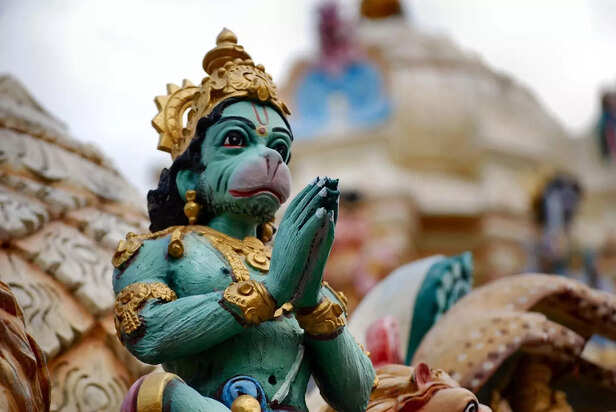
Few people are aware that Hanuman was a talented writer in addition to being well-known for his strength and dedication. Legend has it that Hanuman used his nails to write the complete Ramayana on the walls of a Himalayan mountain following its events. This rendition was inspired by God and was not merely poetic. His recital is claimed to have encapsulated the essence of Lord Ram's life, a tale delivered with love and tears rather than ink.
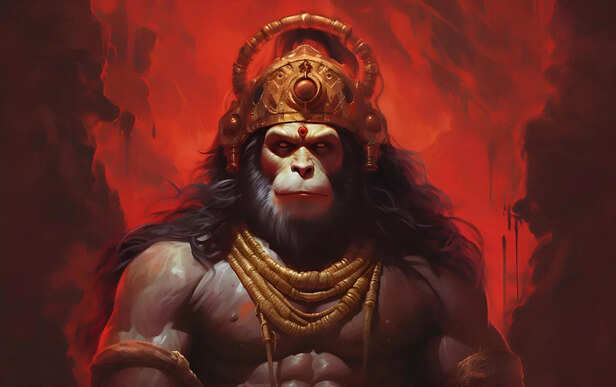
When Sage Valmiki came across Hanuman's writings, he was shocked. Regardless of how poetic his version of the Ramayana was, he realized that Hanuman was more pious and loyal. Hanuman's heartfelt tribute is said to have humbled Valmiki, who is considered the Adi Kavi (first poet). In a moment of emotional surrender, he saw that Hanuman's work was holy and untainted by ego, vanity, or literary desire.
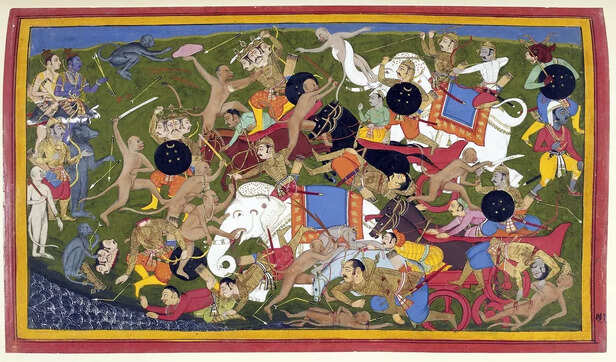
Hanuman did the unimaginable and destroyed his own Ramayana in spite of Valmiki's acclaim. Out of profound humility, not resentment or jealousy. He claimed that his version was not written for fame but rather for his own happiness. He felt that since Ram's story was intended for humanity, it should be told to the world in Valmiki's voice. This self-erasure is not just uncommon, but heavenly. It shows us the value of accomplishing great things without seeking praise.
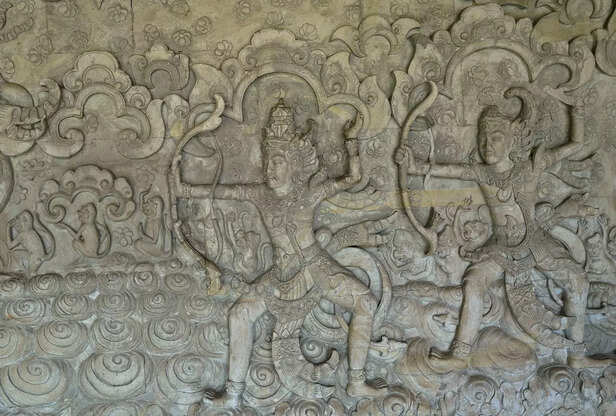
The forgotten Ramayana teaches us the true essence of bhakti — devotion that seeks no recognition or applause. In a world where validation defines success, Hanuman’s act becomes a profound reminder of silent greatness. His story wasn’t lost due to lack of value, but because it was born from love, not ambition. He didn’t write to impress — he wrote to worship. His humility compels us to reflect: are we creating for fame, or for love? For ego, or for something sacred, pure, and eternally divine?
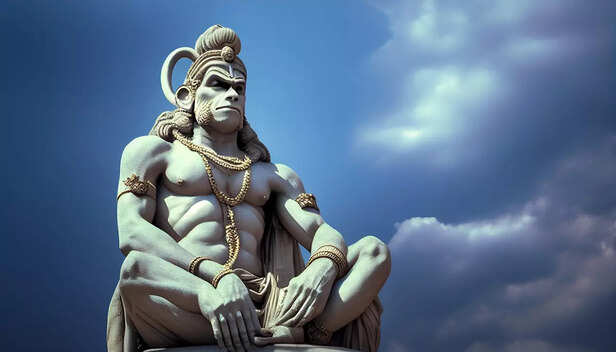
Even if Hanuman's Ramayana isn't written down, it endures in holy chants, saints' silent tales, and the hearts of sincere followers. A little of that heavenly Ramayana awakens each time the Hanuman Chalisa is recited or Ram's name is spoken out with sincerity. It is inscribed in the spirit of unselfish devotion rather than on stone. Unseen, unwritten, but eternal—it permeates every selfless act of love, offering us a glimpse of the genuinely divine.
The tale of Hanuman serves as a reminder that the most genuine manifestations of grandeur and love are frequently overlooked. Knowing that genuine devotion has no audience, he decided to erase his in a society that is fixated on leaving a legacy. Perhaps the authentic Ramayana is meant to be lived rather than read. Like Hanuman, each of us has the capacity to compose our own Ramayana—not with words, but with unselfish devotion, love, and the silent fortitude to avoid attention. Because stories that are solely told to the soul can sometimes have the most impact.
Explore the latest trends and tips in Health & Fitness, Travel, Life Hacks, Fashion & Beauty, and Relationships at Times Life!
1. Hanuman: The Divine Devotee Who Also Became a Poet

religion
( Image credit : Pixabay )
Few people are aware that Hanuman was a talented writer in addition to being well-known for his strength and dedication. Legend has it that Hanuman used his nails to write the complete Ramayana on the walls of a Himalayan mountain following its events. This rendition was inspired by God and was not merely poetic. His recital is claimed to have encapsulated the essence of Lord Ram's life, a tale delivered with love and tears rather than ink.
2. When Valmiki Discovered Hanuman’s Ramayana

Hanuman
( Image credit : Pixabay )
When Sage Valmiki came across Hanuman's writings, he was shocked. Regardless of how poetic his version of the Ramayana was, he realized that Hanuman was more pious and loyal. Hanuman's heartfelt tribute is said to have humbled Valmiki, who is considered the Adi Kavi (first poet). In a moment of emotional surrender, he saw that Hanuman's work was holy and untainted by ego, vanity, or literary desire.
3. Why Hanuman Chose to Erase His Work

battle
( Image credit : Pixabay )
Hanuman did the unimaginable and destroyed his own Ramayana in spite of Valmiki's acclaim. Out of profound humility, not resentment or jealousy. He claimed that his version was not written for fame but rather for his own happiness. He felt that since Ram's story was intended for humanity, it should be told to the world in Valmiki's voice. This self-erasure is not just uncommon, but heavenly. It shows us the value of accomplishing great things without seeking praise.
4. The Message of Hanuman’s Forgotten Ramayana

relief-stone
( Image credit : Pixabay )
The forgotten Ramayana teaches us the true essence of bhakti — devotion that seeks no recognition or applause. In a world where validation defines success, Hanuman’s act becomes a profound reminder of silent greatness. His story wasn’t lost due to lack of value, but because it was born from love, not ambition. He didn’t write to impress — he wrote to worship. His humility compels us to reflect: are we creating for fame, or for love? For ego, or for something sacred, pure, and eternally divine?
5. Why Hanuman’s Version Still Lives On — In Spirit

devotion
( Image credit : Pixabay )
Even if Hanuman's Ramayana isn't written down, it endures in holy chants, saints' silent tales, and the hearts of sincere followers. A little of that heavenly Ramayana awakens each time the Hanuman Chalisa is recited or Ram's name is spoken out with sincerity. It is inscribed in the spirit of unselfish devotion rather than on stone. Unseen, unwritten, but eternal—it permeates every selfless act of love, offering us a glimpse of the genuinely divine.
The Ramayana We Can All Write
Explore the latest trends and tips in Health & Fitness, Travel, Life Hacks, Fashion & Beauty, and Relationships at Times Life!
